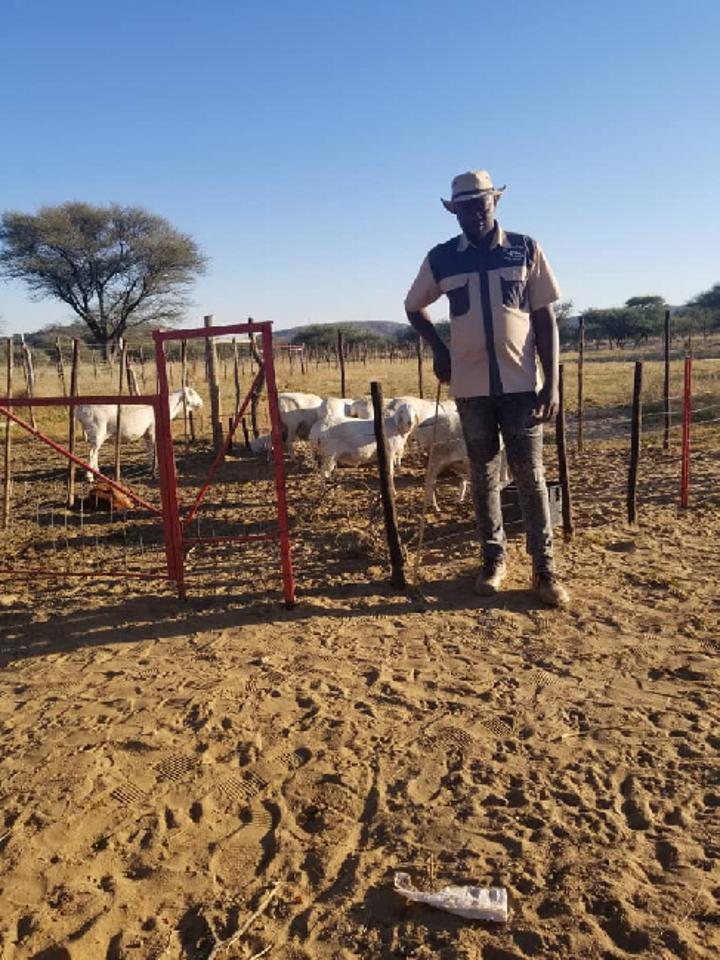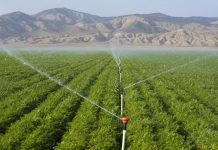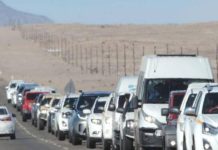Africa-Press – Namibia. THE Covid-19 pandemic taught Otjombinde-based farmer Selma Kambirongo a hard lesson, one she will always keep in mind when the going gets tough.
Having had to struggle with low market prices for her livestock, she says she’s learnt to always keep a few cents aside for rainy days, or rather Covid-hit days.
“It has been a struggle for us. We were already faced with all these difficulties, then we have had to deal with Covid and how it affected livestock prices. It has eased up now and prices are slowly returning to where they were, but the livestock we sold for peanuts are gone forever,” Kambirongo says.
The remote location of Kambirongo’s cattle post means there are hardly any auctions in the area. Instead, only one buyer would come and buy the livestock, which meant he dictated the prices.
She was especially worried about Covid’s impact on elderly village residents as people flocked to villages after the easing of Covid restrictions. Sadly, many of the elderly could not withstand the infections most probably brought into the village by visitors, and succumbed to the pandemic.
“Many of those who died were ageing farmers. Some of them left their homesteads without anybody to take care of them. It was really a sad thing to notice,” Kambirongo says.
Communal farmers in the vast Omaheke region have lived through it all and are still reeling from three consecutive years of drought. Many had already been struggling to stay afloat when Covid-19 hit. The pandemic left a trail of destruction in the region, with death figures almost doubling by the day, especially at its peak from June to August.
From October 2018 to May 2019, Namibia experienced its driest rainfall season in 38 years, resulting in a severe drought that has negatively affected many Namibians. The drought has resulted in diminished crop production estimated to be 42% below the average in many areas, and has left 257 383 people without adequate food, according to various UN agency reports.
The recurrent drought conditions in a country that already suffers from water scarcity havealso put the security of water supply for agriculture (crop and livestock), domestic and industrial purposes, in crisis. In addition, grazing conditions continue to deteriorate in most parts of the country resulting in poor livestock conditions.
The Omaheke region is estimated to have lost around 2 500 livestock during this period. Farmers in the region had just scraped enough resources together to be able to slowly start stocking up again, but then they were forced to watch silently from the sidelines as Covid too took its toll.
Low market prices, and weak and lean livestock have been some of the challenges faced by farmers. Communal Epukiro farmer Willem Tjivikua says the last two years have been some of the most difficult.
Like many other farmers in the area, Tjivikua usually sells his animals to willing local buyers because it’s not always possible to make the long trek to Gobabis where he can secure better prices. During Covid, many farmers faced a similar dilemma, as many buyers could not travel due to strict restrictions.
“There are one or two people who reside close to where we conduct our farming and they would buy cattle from us. But as Covid restrictions came in, they could not travel to sell off the animals bought from us. So, they stopped buying animals from us,” he says.
This meant that farmers like Tjivikua could not meet some of their monthly financial commitments, especially supporting their children in school hostels who depend on the sale of livestock.
When restrictions eased up, the prices were very low, leaving farmers with a difficult decision to make – refuse to sell and sacrifice their livelihood, or simply give their livestock away for a song.
“Livestock left standing in the kraal is worth nothing. They need to reach the market to be turned into money. So we had to sell at those weak prices,” Tjivikua says.
Rodney Tutjavi, a part-time communal farmer at the Aminuis constituency says the initial restrictions at the start of the Covid outbreak in the country during April 2020 cut very deep. So much so that he is still reeling from the losses incurred during that period.
Being a weekend farmer, Tutjavi only travels to his livestock once every second week. During these travels, he needs to pay the herdsmen, inspect the livestock and make crucial decisions based on what he observes. However, because the country was under lockdown, he could not carry out these duties.
“Both of my workers who were guarding my livestock left their jobs and returned to their places of origin because I could not travel to the village. When I eventually managed to get a permit to travel, I found a lot of things that were not in place and the workers had left without even a word,” he says.
Some livestock went missing due to being left unguarded, and he says he’s still struggling to find some of his small stock. “I estimate that probably 20 goats are still not accounted for. That is a loss, considering how the price of small stock is improving lately. We are struggling as farmers, especially some of us who work far from our villages.
“Covid just made things worse.”
‘IF YOU DON’T SELL, YOU DON’T EAT’ Low market prices and weak and lean livestock have been some of the challenges. Tjivii Tjombe, a farmer known for his top quality Van Rooy sheep, said Covid impacted the sale of his animals.
As many of his animals are sold at agricultural shows and during production auctions, the absence of these events – especially at the peak of the pandemic in 2020 – made it difficult to profit from his sheep.
“I had to cancel the sale of some sheep that I had prepared to be sold, as buyers could either not reach me due to travel restrictions, or they just didn’t have the money to buy the sheep. It was indeed a tough period as a farmer.
“If you don’t sell, you don’t eat; that’s how we survive as farmers,” he said.
– This article was produced with support from the Open Society Initiative for Southern Africa Grant.
For More News And Analysis About Namibia Follow Africa-Press






